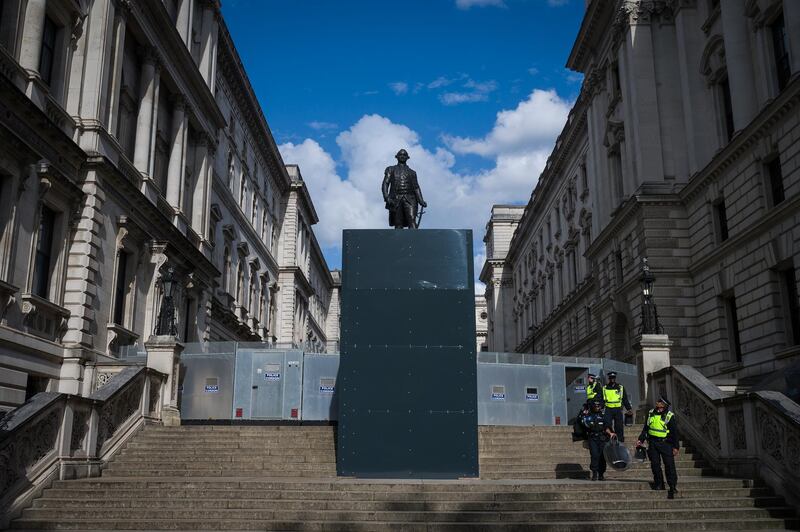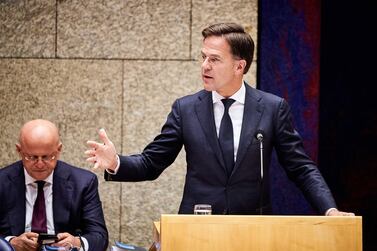Prominent British historian David Starkey has resigned from his role at Cambridge University after sparking widespread anger over his racist views and playing down the impact of slavery and the UK's colonial past on a live broadcast.
Fitzwilliam College said it had accepted the resignation of David Starkey from his honorary fellowship as educational institutions scrambled to cut their links with the high-profile historian.
"Slavery was not genocide, otherwise there wouldn’t be so many damn blacks in Africa or in Britain, would there?" Mr Starkey told Conservative commentator Darren Grimes on Thursday.
"An awful lot of them survived."
Another university fired Mr Starkey from his job as visiting professor with immediate effect citing his "completely unacceptable" comments.
We have terminated David Starkey’s position as Visiting Professor with immediate effect. His comments are completely unacceptable and totally go against our University and community values.
— Canterbury Christ Church University (@CanterburyCCUni) July 3, 2020
The comments also sparked a backlash from prominent politicians including former UK interior minister Sajid Javid.
Mr Javid condemned his comments, calling them “racist” and “a reminder of the appalling views that still exist”.
Mr Starkey is a well-known figure in Britain, where he appears regularly in TV documentaries and has published best-selling books.
“There’s no point in arguing against globalisation or western civilisation – they are products of it," he said in the interview, when pressed on the links between the British empire and slavery.
"We are all products of it. The honest teaching of the British empire is to say, quite simply, it was the first key stage of world globalisation.
“It was probably the most important moment in human history and it is still with us. Its consequences are still (felt) and generally speaking in most ways actually fruitful.”
Mr Starkey also criticised the Black Lives Matter protests sparked by the police killing of unarmed African-American George Floyd in Minneapolis.
He said they were characterised by “violence” and their efforts to pull down monuments to historical figures with links to slavery were “deranged”.
Fitzwilliam College described his remarks as “indefensible” and said it would consider Mr Starkey’s honorary fellowship when its governing body met next week. The historian pre-empted the decision by resigning.
The college hosted a conference last year intended to encourage more students from black and minority ethnic backgrounds. "We cannot be a great university if, even inadvertently, ae are not open to the social and cultural diversity of the world around us," the university's vice-chancellor Stephen Toope told the conference.
Before the resignation, Cambridge lecturer, Nicholas Guyatt, took to Twitter to decry the institution’s links with Mr Starkey.
“Can’t speak for my employer but as someone who teaches history at Cambridge, I’m ashamed of our connections with David Starkey and urge both the University and Fitzwilliam College to cut all ties with him.”
Mr Starkey was also criticised for comments he made after riots in the UK in 2011.
Appearing on the BBC's Newsnight programme, he said "whites have become black" in his description of the widespread rioting in British cities that year.
Fellow white historians, I know I am a terrible hypocrite but please don't make the Starkey thing about how great you are for cancelling a racist. We didn't cancel him in 2011 or before so really we have nothing to be proud of here.
— Nicholas Guyatt (@NicholasGuyatt) July 3, 2020








